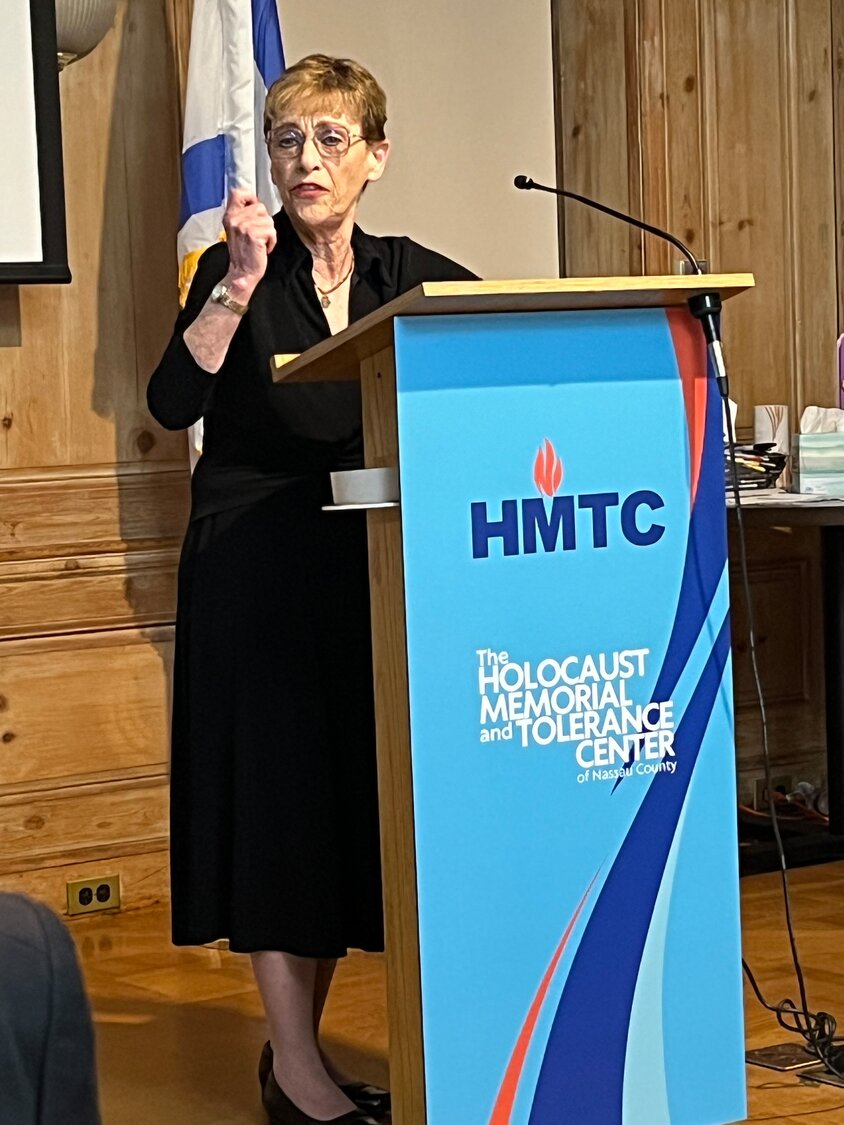Yom HaShoah held at Holocaust Tolerance and Memorial Center
Dozens of people gathered at the Holocaust Tolerance and Memorial Center in Glen Cove last Sunday to commemorate Yom HaShoah — Holocaust Remembrance Day, which pays tribute to the 6 million Jews that were killed in World War II. Glen Cove City Councilwoman Marsha Silverman, Congregation Tifereth Israel and North Country Reform Temple welcomed Jews and non-Jews to honor the millions of victims of the Holocaust.
This year’s remembrance had a heightened sense of urgency, seven months after Hamas’ Oct. 7 attack on Israel, the deadliest single day in the country’s history. Antisemitism has surged worldwide, according to the Anti-Defamation League, which has reported a steep jump in incidents in the months since. The ADL recorded more than 7,500 antisemitic episodes in the United States in 2023, compared with fewer than 3,700 in 2022. It also noted significant increases in incidents in large American cities, including New York City and Los Angeles.
“To be Jewish is to remember — to claim our right to memory, as well as our duty to keep it alive,” Rabbi Michael Churgel, of North Country Reform Temple, said. “There is evil in the world, we cannot let ourselves forget, yet to remember the goodness of our loved ones is to find a way to trust the world again, to place the moments in our sacred calendar. These are the purposes of Yom HaShoah.”
The observance also commemorates the beginning of the Warsaw Ghetto uprising of 1943, when a band of Jewish resistance fighters in the largest Nazi ghetto in World War II managed to defy their well-armed German occupiers.
The evening’s keynote speaker, Gail Kastenholz, is the daughter of two Holocaust survivors, and has dedicated herself to Holocaust remembrance, earning the Bruce Morel Education Award in 2019. She spoke about her parents’ experiences in the war, and how that formed her life path as an educator. She is now a docent for the Holocaust Center.
Kastenholz’s parents were interned in a ghetto in northern Germany in 1941, and members of her father’s family were murdered in retaliation for the killing of a Nazi soldier by a Jew there. Remarkably, her parents managed to escape, and were hidden by a Polish farmer in a barn for 18 months. Despite the trauma, they eventually found refuge and built a new life in the United States.
“People survived not because they were smarter, richer or better than anyone else,” Kastenholz said. “Somebody did something for one moment to help them live. A righteous person took action that was dangerous simply because it was the right thing to do.”
Her parents ate potato peels, she said, to survive in the barn. In their memory, she leaves potato peels out for Seder.
“I am the link between the past, present and future,” Kastenholz said. “That is and has been my legacy for more than four decades. As a Jew, a mother, a wife or grandmother, a friend, an American educator, and a member of the human race, I am a second-generation survivor — being a ‘2G’ is in my DNA and in my heart and in my soul.”
After Kastenholz spoke, Silverman reflected on the dwindling number of Holocaust survivors. She noted that although the number of people who were killed may seem abstract, hearing firsthand accounts helps to deepen the understanding of one of history’s darkest moments.
Another attendee, Assemblyman Charles Lavine, president of the New York chapter of the National Association of Jewish Legislators, addressed the concerning rise of antisemitism and the seeming ostracization of the Jewish community in segments of American society. He drew parallels between the experiences of Jews and other marginalized groups, emphasizing that all forms of hatred and discrimination must be confronted and condemned.
“We today face the challenge of being the ‘other,’” Lavine said. “Whether a person is black or Latino, gay, bi, trans — no matter what — they are they subjected to hatred. Too many of our colleagues in government thrive on that hatred. We must do everything we can, because Jew hatred is nothing more and nothing less than racism.”

 58.0°,
Partly Cloudy
58.0°,
Partly Cloudy 





